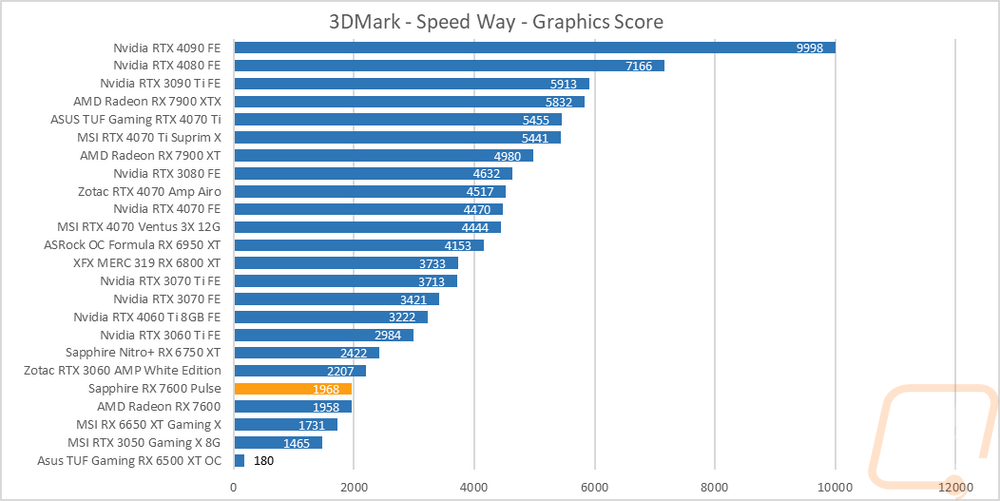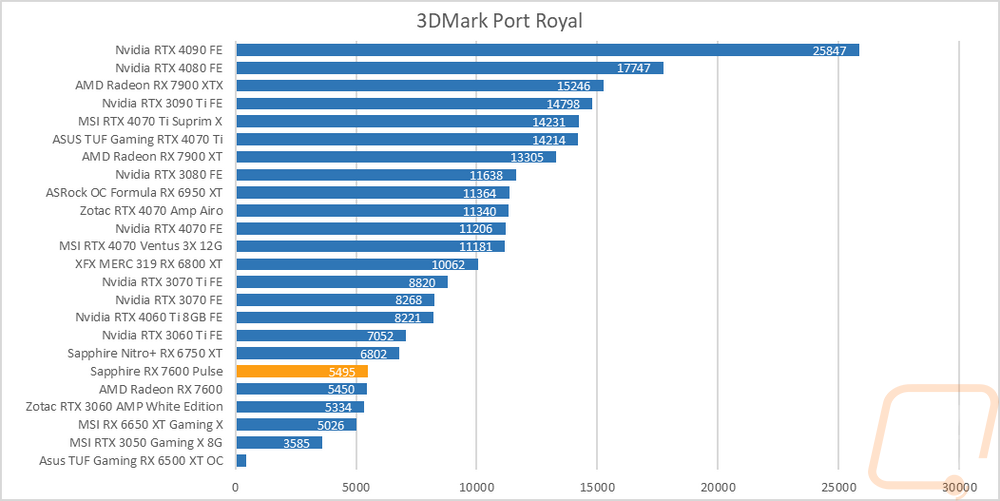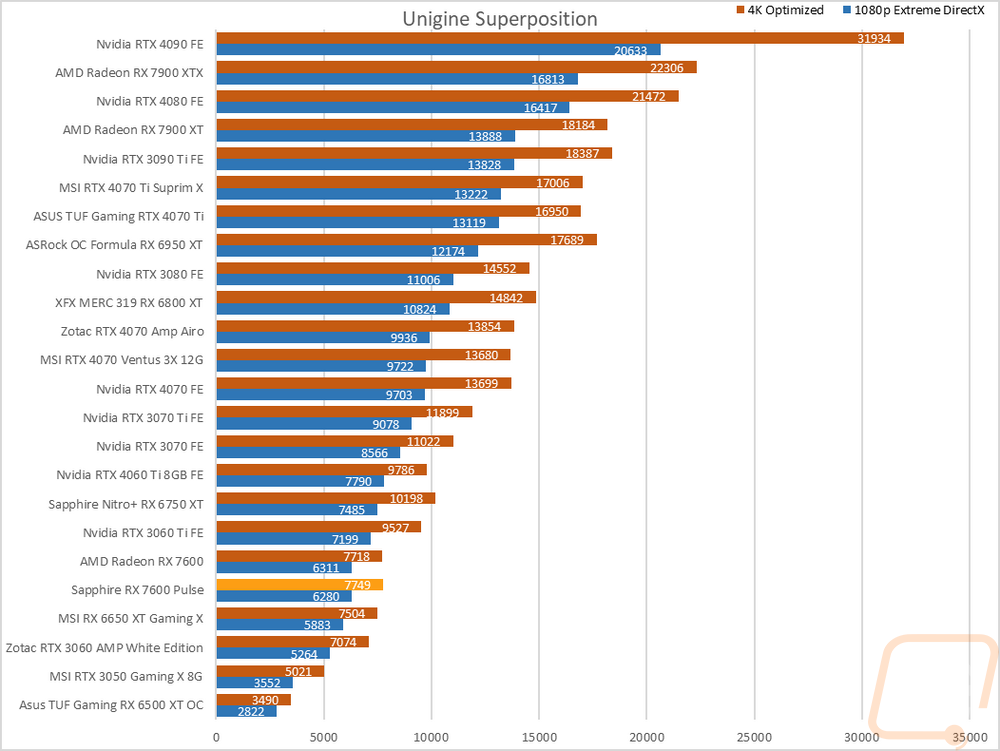Synthetic Benchmarks
As always I like to start my testing with a few synthetic benchmarks. 3DMark especially is one of my favorites because it is very optimized in both Nvidia and AMD drivers. It's nice to not have to worry about it being favored too much either way and the repeatability of the results makes it a nice chance to compare from card to card, especially when comparing with the same GPU. While I am still interested to see how the RX 7600 Pulse compares to the 6650 XT, the RTX 3060, and the RTX 3060 Ti that we saw the reference card compete with in our coverage of that card. But I am most interested in seeing how the Pulse compares with AMDs reference card, the Sapphire RX 7600 Pulse has a boost clock of 2751 MHz which is 96 MHz over the reference card's 2655 MHz boost clock speed. It also has a higher default clock speed of 2356 Mhz over the 2250 MHz on the reference card.
The first round of tests were done in the older Fire Strike benchmark which is a DX11 test. There are three detail levels, performance, extreme, and ultra. The RX 7600 Pulse ended up just slightly behind the reference RX 7600 in the base Fire Strike test but ahead of it my very small margins on the Extreme and Ultra detail settings. It also outperformed the RTX 3060 Ti in the first two tests but is slightly behind it in the ultra test.



The next two were both based on the Time Spy benchmark. One is the standard test and then there is the extreme detail level. The RX 7600 Pulse is 36 points ahead of the reference card in the base Time Spy and 20 points ahead in the Time Spy Extreme test, both with extremely small margins. Both cards dropped down below the RTX 3060 Ti here and are sitting ahead of the older 6650 XT as well as the RTX 3060.


For ray tracing performance, I ran both the 3DMark Port Royal test which is ray tracing focused as well as the new 3DMark Speed Way test which tests all future-looking features including ray tracing. In Speed Way, the RX 7600 Pulse gained 10 points on the reference card but both are still well below the RTX 3060 in this test. The gap between them is a little wider in the Port Royal test at 45 points and both are just slightly ahead of the overclocked RTX 3060.


The last test was using the Unigine-based Superposition benchmark and I tested at 1080p with the extreme detail setting as well as the 4K optimized setting. In the extreme detail setting the RX 7600 Pulse is 31 points behind the reference card in the 1080p Extreme test but ahead by 31 points in the 4K optimized test.



